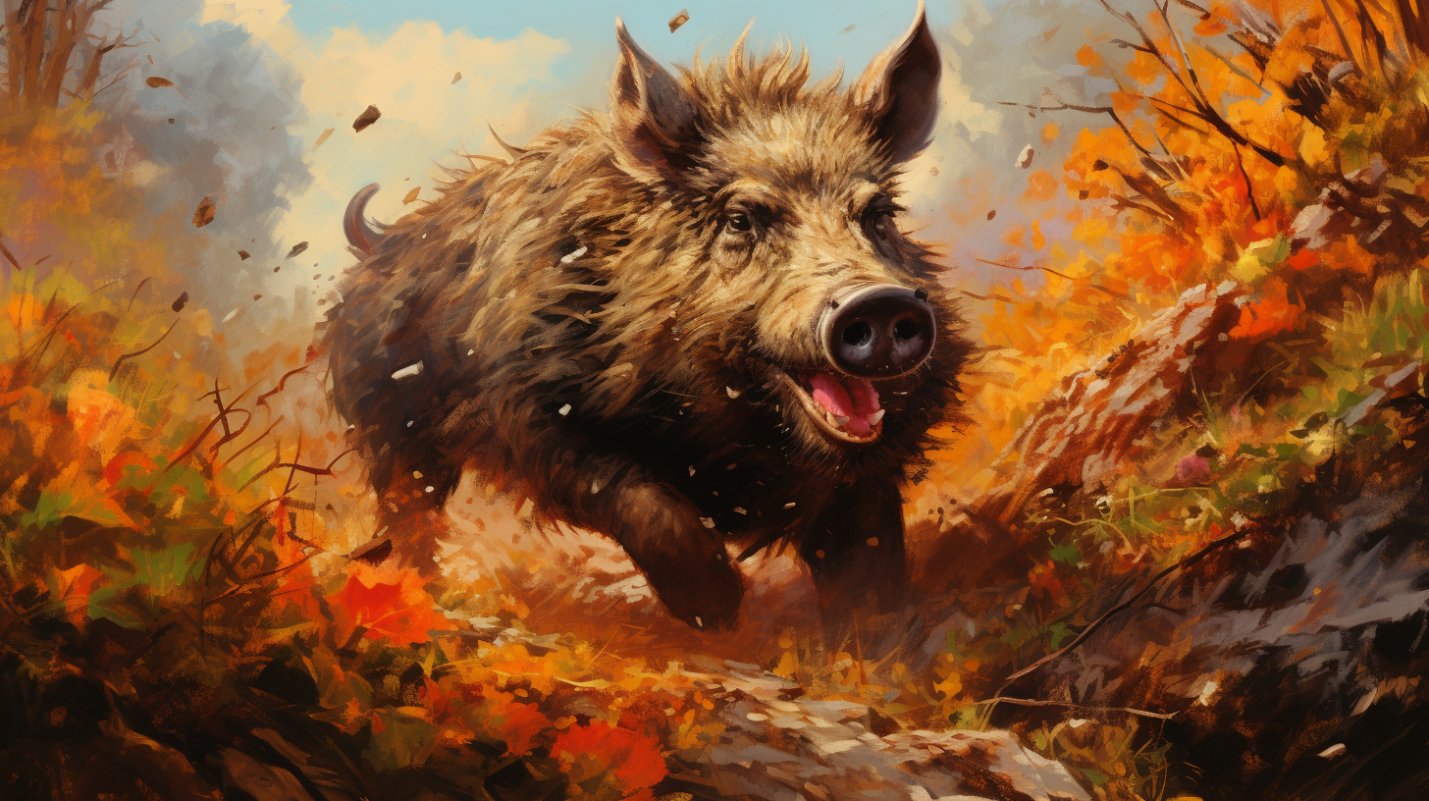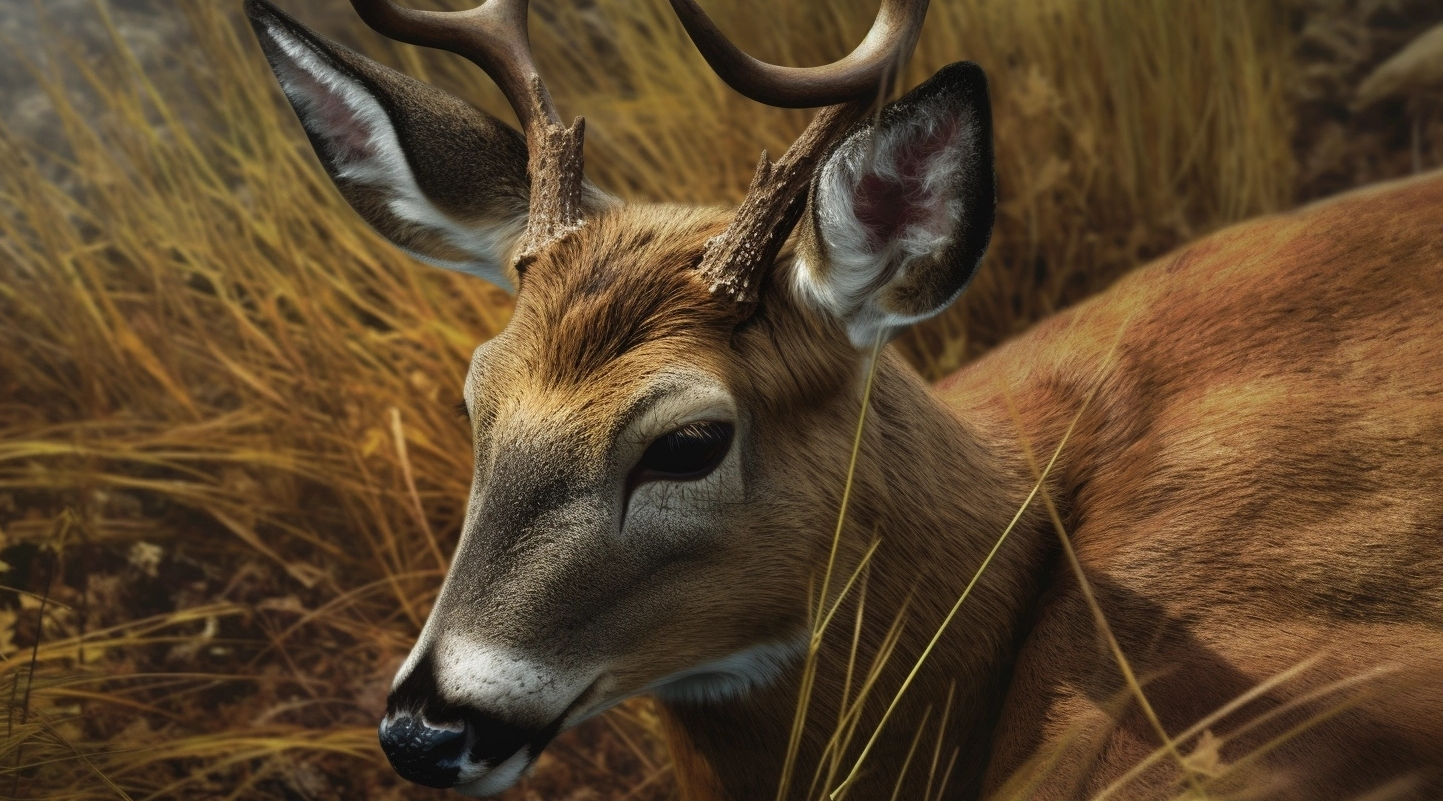Introduction
Are you an adventurous individual who enjoys the thrill of hunting? If so, then wild boar hunting might be the perfect activity for you. Wild boar hunting offers a unique and exciting experience that can be both challenging and rewarding. In this article, we will explore the various aspects of wild boar hunting and provide you with valuable tips and insights on how to make your hunting experience truly unforgettable.
The Appeal of Wild Boar Hunting
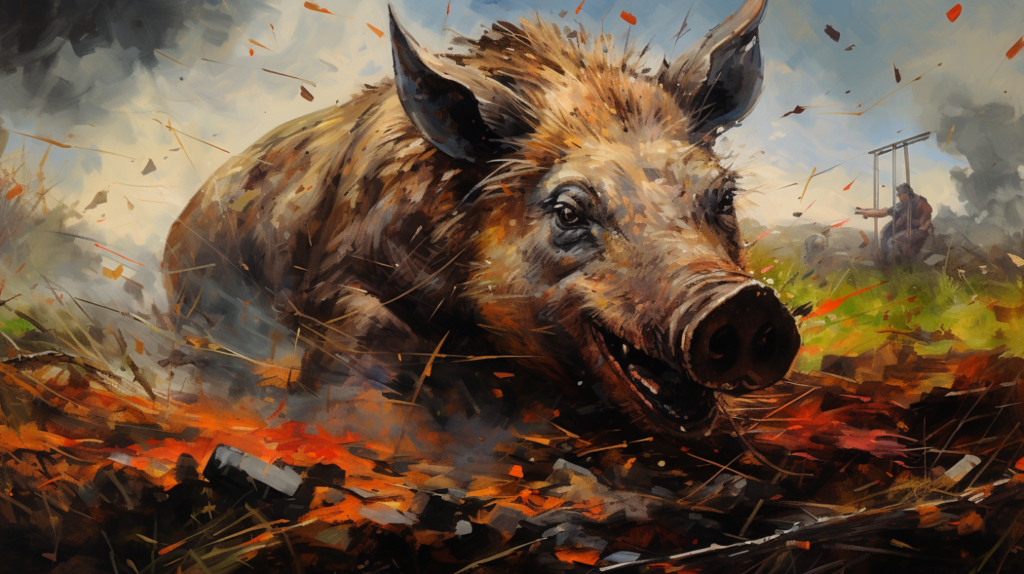
Wild boar hunting has gained significant popularity among hunting enthusiasts due to its unique challenges and rewards. The thrill of tracking and hunting these elusive creatures in their natural habitat is an experience like no other. The combination of strategy, skill, and adrenaline makes wild boar hunting an exciting adventure for those seeking a memorable hunting experience.
Understanding the Wild Boar
Before embarking on a wild boar hunting expedition, it is crucial to understand the behavior and characteristics of these animals. Wild boars are highly intelligent and adaptable creatures known for their keen sense of smell and hearing. They are generally aggressive when threatened or cornered, making them a challenging target for hunters. Learning about their habits and natural habitat will significantly enhance your chances of a successful hunt.
Essential Gear for Wild Boar Hunting
To ensure a safe and successful hunting experience, it is essential to have the right gear. Some of the must-have equipment for wild boar hunting includes:
- Rifle or Bow: Choose a firearm or bow that suits your hunting style and skill level.
- Ammunition: Carry an adequate supply of appropriate ammunition.
- Hunting Knife: A sharp and sturdy knife is essential for field dressing and butchering.
- Clothing and Boots: Wear camouflage clothing and comfortable, durable boots for stealth and protection.
- Hunting Accessories: Bring essential accessories like binoculars, rangefinders, and a compass.
Choosing the Right Hunting Spot
Selecting the right hunting spot is crucial for a successful wild boar hunting experience. Look for areas with signs of wild boar activity, such as tracks, wallows, or rooting marks. Consider hunting near water sources or feeding areas, as wild boars are more likely to frequent these locations. Researching and scouting potential hunting spots beforehand will give you a competitive advantage.
Safety Precautions to Consider
Safety should always be a top priority when engaging in any hunting activity. Wild boar hunting can be physically demanding and potentially dangerous. Here are some safety precautions to consider:
- Know Your Target: Be certain of your target before taking a shot to avoid accidental injuries.
- Proper Firearm Handling: Follow all firearm safety rules and maintain control of your weapon at all times.
- Use Protective Gear: Wear appropriate protective gear, including ear protection and blaze orange clothing for visibility.
- Hunting with Others: It is advisable to hunt with a partner or in a group for added safety and support.
Hunting Techniques and Strategies
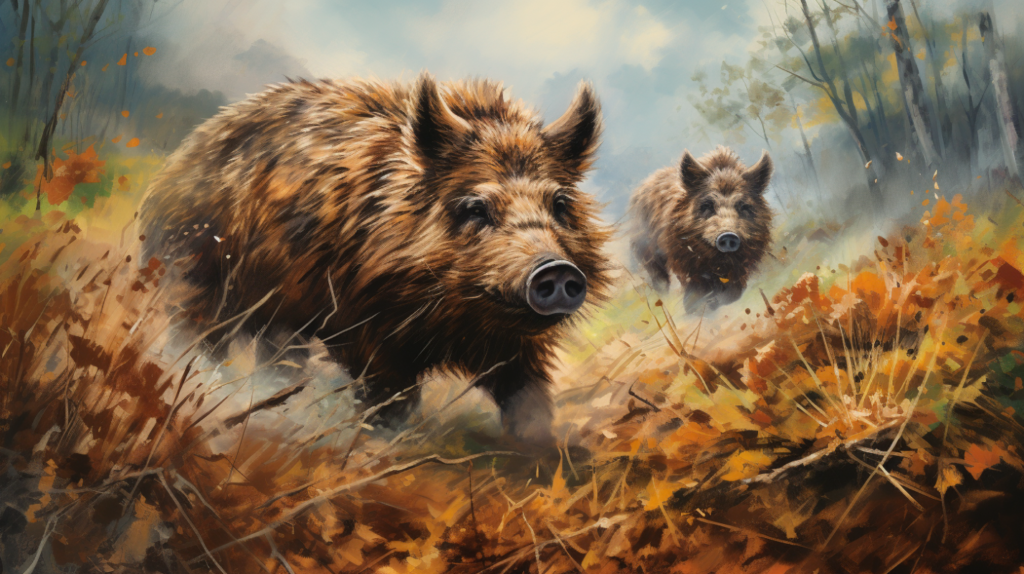
Wild boar hunting requires strategic planning and the use of effective techniques. Some common hunting methods include:
- Spot and Stalk: Locate wild boars from a distance and approach them stealthily for a clear shot.
- Driven Hunt: Organize a group of hunters to drive the boars towards waiting hunters.
- Stand Hunting: Position yourself in a strategic location and wait for wild boars to pass by.
- Night Hunting: Utilize night vision or thermal imaging equipment to hunt wild boars in low-light conditions.
Tracking and Locating Wild Boars
Tracking and locating wild boars require a keen eye and a good understanding of their behavior. Look for signs such as tracks, droppings, or overturned soil. Pay attention to their feeding and bedding areas to increase your chances of spotting them. Patience and persistence are key when tracking these elusive creatures.
Shot Placement for Clean Kills
Ethical hunting practices prioritize clean and humane kills. Understanding shot placement is crucial to ensure a quick and efficient takedown. Aim for vital organs such as the heart or lungs for an ethical kill. Avoid shooting at non-vital areas to minimize suffering.
Field Dressing and Butchering
Once you have successfully harvested a wild boar, proper field dressing and butchering techniques are necessary to preserve the meat. It is crucial to handle the meat hygienically and efficiently. Take care to remove the internal organs and cool the meat as soon as possible to maintain its quality.
Preserving and Cooking Wild Boar Meat
Wild boar meat is known for its unique flavor and lean texture. Proper preservation and cooking techniques can enhance its taste. Consider methods such as marinating, slow cooking, or smoking to maximize the flavors. Experiment with different recipes to create delicious meals from your harvest.
Trophy Preparation and Mounting
For those interested in preserving the memory of their wild boar hunting experience, trophy preparation and mounting offer a lasting memento. Consult with professional taxidermists to prepare and mount your trophy in a lifelike and visually appealing manner.
Ethical Considerations in Wild Boar Hunting
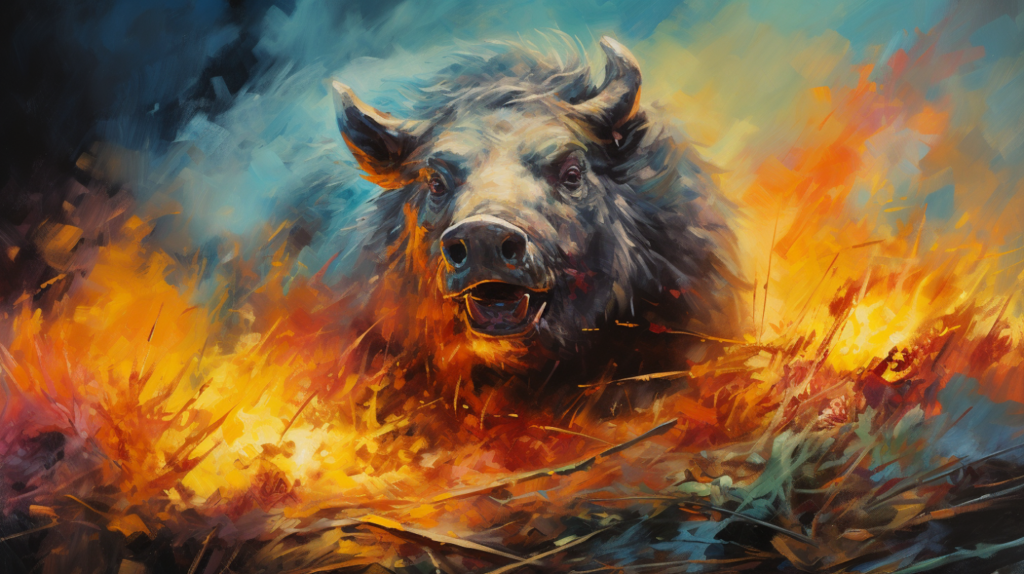
As responsible hunters, it is essential to consider ethical aspects of wild boar hunting. Respect the environment, wildlife, and the regulations in place. Adhere to legal hunting seasons and bag limits to maintain a sustainable balance between hunting and conservation efforts.
Environmental Impact and Conservation Efforts
Wild boars can have a significant impact on ecosystems and native wildlife. It is crucial to understand the ecological consequences of their presence and support conservation efforts. Participate in initiatives aimed at controlling wild boar populations and preserving the integrity of natural habitats.
Wild Boar Hunting Regulations and Licensing
Before engaging in wild boar hunting, familiarize yourself with the relevant hunting regulations and licensing requirements in your area. Compliance with these regulations ensures the sustainability of hunting activities and helps preserve the natural balance of wildlife populations.
Conclusion
In conclusion, wild boar hunting offers a thrilling and unforgettable experience for hunting enthusiasts. By understanding the behavior of wild boars, using the right gear, employing effective hunting techniques, and prioritizing safety and ethics, you can enhance your hunting experience and create lasting memories. Remember to respect the environment, follow hunting regulations, and support conservation efforts to ensure the sustainability of this exciting pursuit.
FAQs
1. Is wild boar hunting legal?
Wild boar hunting is legal in many regions, but it is essential to familiarize yourself with local hunting regulations and obtain the necessary licenses and permits before engaging in hunting activities.
2. What is the best time of year for wild boar hunting?
The best time for wild boar hunting may vary depending on the region. However, early morning and late evening hours, as well as colder months, are generally considered favorable for hunting.
3. Can I eat wild boar meat?
Yes, wild boar meat is edible and highly valued for its unique flavor. With proper handling and cooking techniques, it can be transformed into delicious meals.
4. Are wild boars dangerous to humans?
Wild boars can be aggressive and pose a potential danger if they feel threatened. It is crucial to exercise caution and respect their space when encountering them in the wild.
5. Can I hunt wild boars alone?
While hunting alone is possible, it is generally recommended to hunt with a partner or in a group for safety reasons. Hunting with others provides added support and enhances the overall experience.
